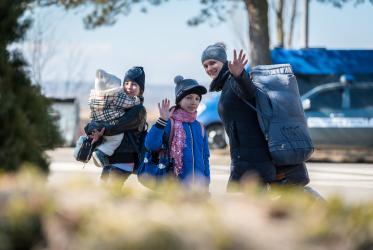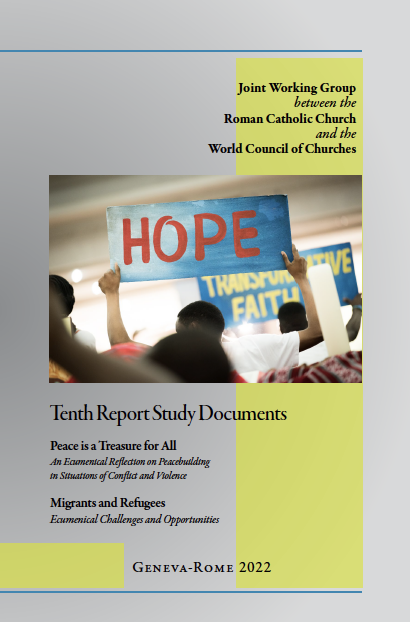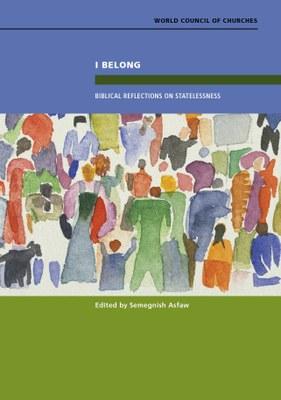Joint Working Group between the Roman Catholic Church and the World Council of Churches
Peace is a Treasure for All: An Ecumenical Reflection on Peacebuilding in Situations of Conflict and Violence
Migrants and Refugees: Ecumenical Challenges and Opportunities
These Study Documents to the JWG 10th Report—Walking, Praying and Working Together, together with the report, encourage intensive ecumenical cooperation of all Christians and people of goodwill, with a particular emphasis on the contributions that can be made by the WCC and the RCC together.
19 August 2022



